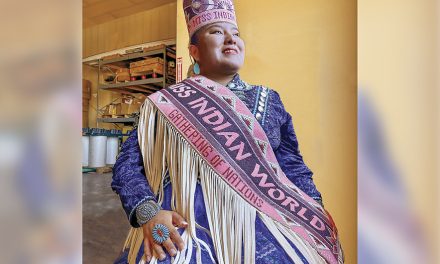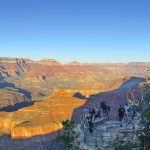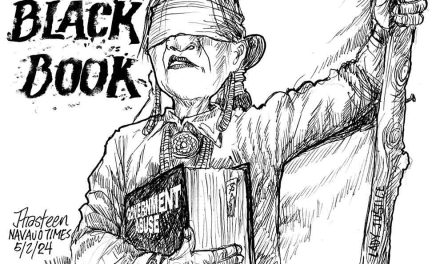
Water is life: Arizona Water Rights Settlement
Water is life: Arizona Water Rights Settlement
By Speaker Crystalyne Curley
Editor’s note: Crystalyne Curley is the speaker of the 25th Navajo Nation Council.
For the Navajo people, water is central to the Diné lifeway and essential to our livelihood. It’s invaluable because without water, there is no life.
For decades, the Navajo people have sought to secure this precious resource to help sustain our livelihood now, and for future generations.
Despite being the largest tribe in the United States, the Navajo Nation has historically been marginalized in discussions surrounding water rights, leading to disparities in access and infrastructure.
Our Nation continues to face systemic challenges in accessing and managing this precious resource. Over one-third of homes on the Navajo Nation lack indoor plumbing. The COVID-19 pandemic highlighted this circumstance, and deepened disparities that exist on the Nation.
The pursuit to secure water rights in Arizona is complex with competition and pressure from other stakeholders who seek to protect the rapid growth of western cities even while surface and ground water levels decline, and environmental needs intensify.
As groundwater levels decrease across the southwest, the Navajo Nation must contemplate its over-reliance on groundwater usage and secure surface water to sustain future generations. Currently, 80% of Navajo Nation water comes from ground water.
Currently, the Navajo Nation stands at a critical juncture in its pursuit of a water rights settlement. Over the past several months, the Navajo Nation has been engaged with tribal, municipal, state, federal, and other principal parties to negotiate a settlement that will settle all the Navajo Nation’s water rights claims in Arizona. This includes claims to water in the Upper and Lower basins of the Colorado River, the Little Colorado River Basin, groundwater, and the Gila River Basin.
The significance of securing a fair and comprehensive Arizona water rights settlement for the Navajo Nation cannot be overstated. Such an agreement would not only help to rectify past injustices but also lay the foundation for sustainable economic development, cultural preservation, and environmental stewardship – not only for the Navajo Nation but also for other tribal nations.
We’re fighting for a settlement that will justify federal funding to provide potable water to our unserved communities who deserve the same opportunity as other Americans to live with 21st century amenities, like those provided immediately outside of our sovereign territory.
The Navajo Nation Water Rights Commission, the Department of Justice, and Navajo Nation leadership – largely comprised of Diné women – have spent countless hours meeting and negotiating this settlement, and we are near the point of presenting a proposed settlement before the Navajo people.
We have held numerous public education sessions to offer information and listen to input regarding the framework for a settlement. In the coming weeks, we will continue to do so, but with a focus on the terms of the proposed Arizona water rights settlement. As the settlement moves forward in the form of Navajo Nation Council legislation, the 25th Navajo Nation Council will solicit public comments on the settlement to hear the voices of our people on this critical agreement.
Across the Nation, we recognize how the lack of access to water resources and infrastructure has led to the displacement of Navajo community members who were forced to move in order to access water resources. We see how it stifles economic development on multiple levels and remains a permanent obstacle to investments in infrastructure projects that are vital to growth, health, and prosperity on our Nation, including roads, housing, education, and healthcare.
We need to secure our investments to address these immediate basic human needs on our Nation, and we need to build resilience in the face of climate change. We also need to ensure the long-term sustainability of Navajo communities.
For many of us, living without running water has become a part of our lives. Growing up without running water, I understand that many homes are not able to turn on a faucet for a drink of water, to cook, bathe, or shower. Our weeks begin and end with the hauling of water from wells and watering stations, to ensure the livelihood of our families and our livestock.
Now is the time for decisive action and meaningful dialogue to ensure that the Navajo people have access to the resources we need to thrive. This is our time to claim what is ours.








 Highway 264,
Highway 264, I-40, WB @ Winslow
I-40, WB @ Winslow